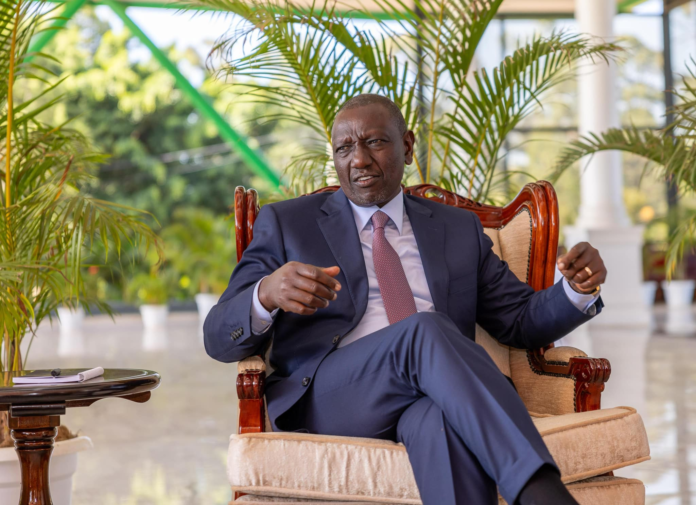President William Ruto has cautioned Kenyans against disrupting peace and public order ahead of the planned June 25 demonstrations, as memories of last year’s deadly protests continue to stir national debate.
Speaking during a breakfast meeting with Football Kenya Federation Premier League champions Police FC at State House, Nairobi, Ruto defended the role of the police in maintaining law and order, insisting they are among the most professional security forces in the region.
“Nobody is above the law. You cannot intimidate or threaten the police. If you do, you’re threatening our nation. These officers are our frontline defenders,” said the President, underscoring the need for discipline during civic actions.
Interior Cabinet Secretary Kipchumba Murkomen echoed the President’s remarks, urging Kenyans to appreciate the freedoms they enjoy, including the right to dissent and use social media for political expression — privileges, he said, are not as freely permitted in other countries.
“In the UK, if someone tweeted they were going to Buckingham Palace, they would be arrested before stepping outside. In the US, saying ‘let’s invade the White House’ online is enough for the Secret Service to act immediately,” Murkomen said.
“It’s only in Kenya where someone can threaten to storm Parliament, Judiciary, or State House and still walk free. Even when taken to court, they are quickly released.”
Murkomen commended the Kenya Police Service for what he termed “commendable restraint” and professionalism, especially amid political pressure and difficult operational conditions.
“Kenya is one of the most politically challenging environments for any police service. On one hand, officers are tightly restricted in maintaining order, and on the other, they must navigate political leaders who often do little to support them,” he noted.
The President’s comments come as Kenyan youth prepare for demonstrations to commemorate victims of police brutality during the 2024 anti-Finance Bill protests. Human rights organisations say at least 60 people were killed during that period, with others abducted or still missing.
Protest organisers have vowed to peacefully honour those who lost their lives while continuing to demand justice and reforms in the country’s security and governance systems.







